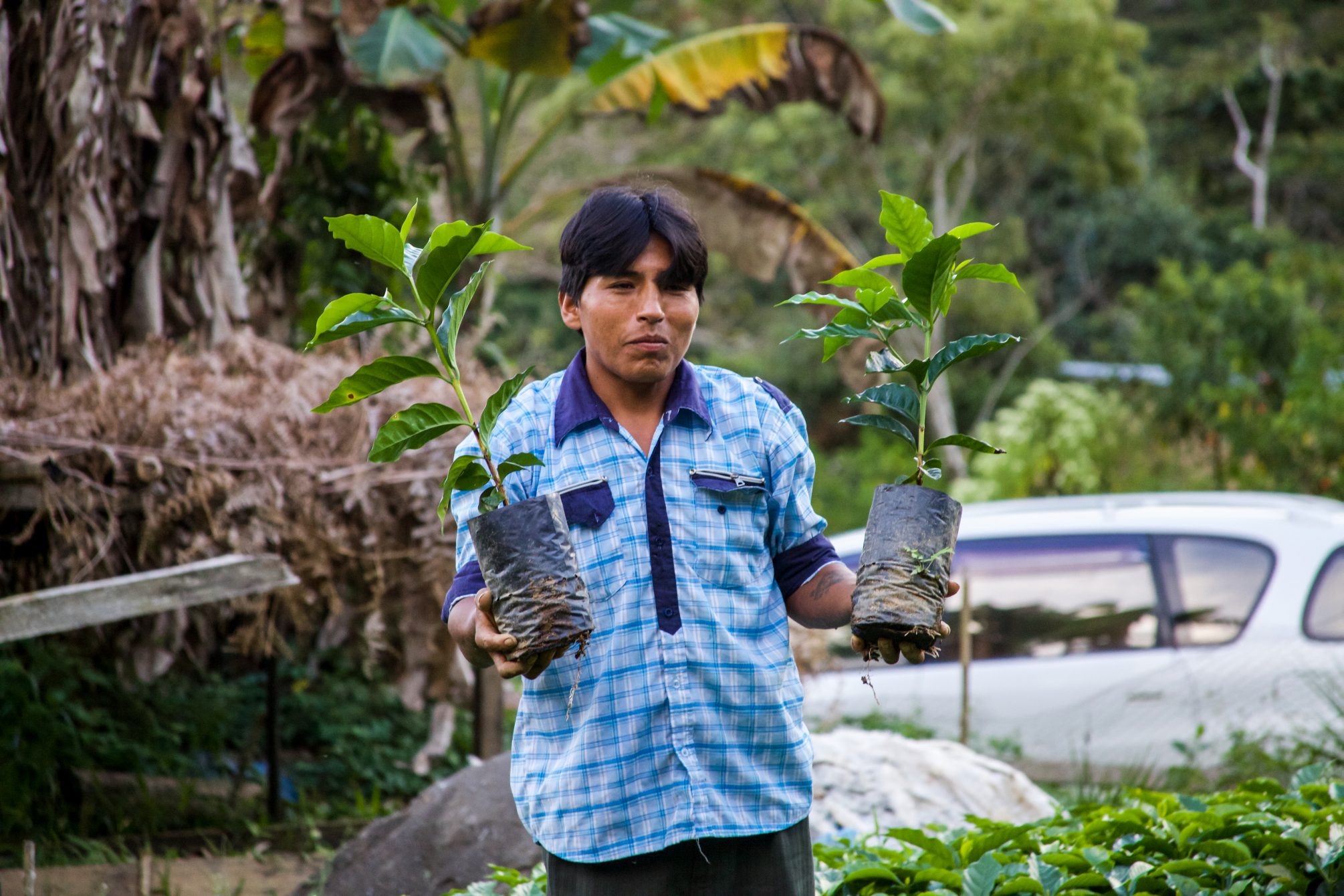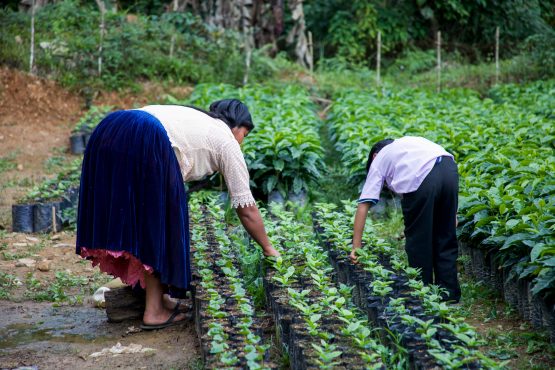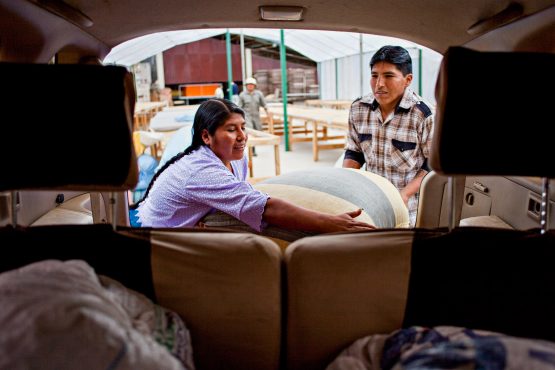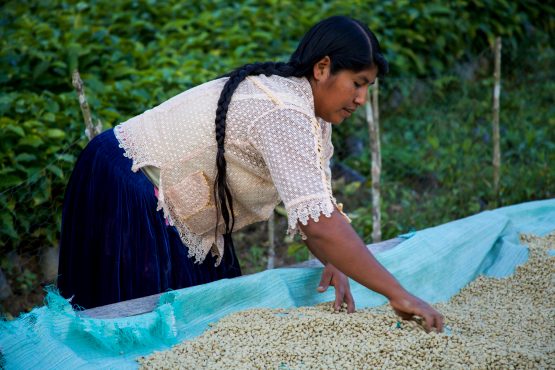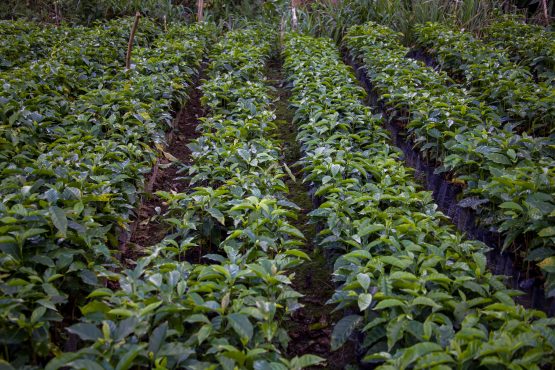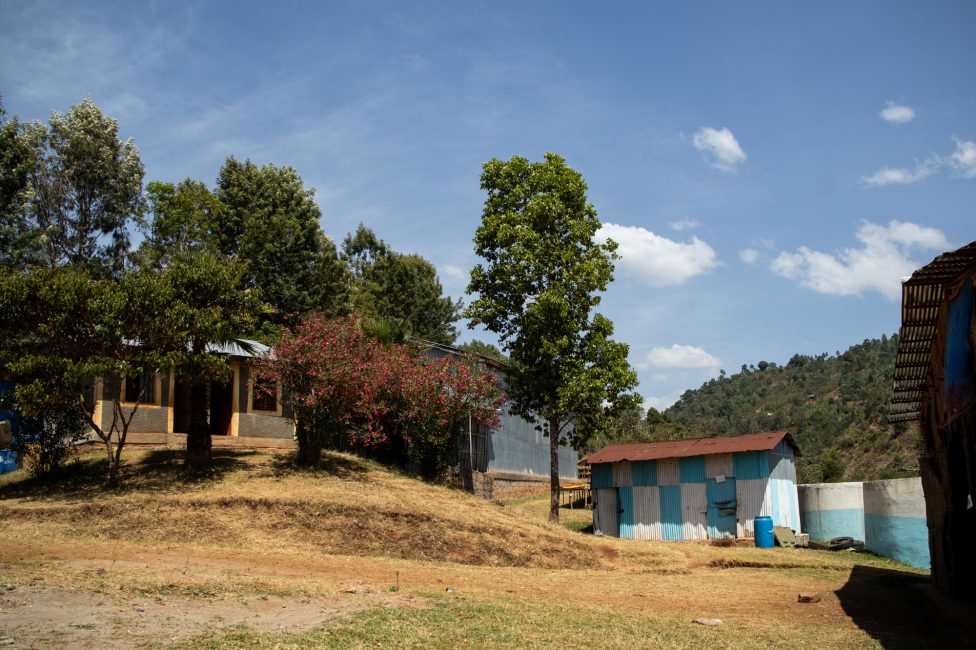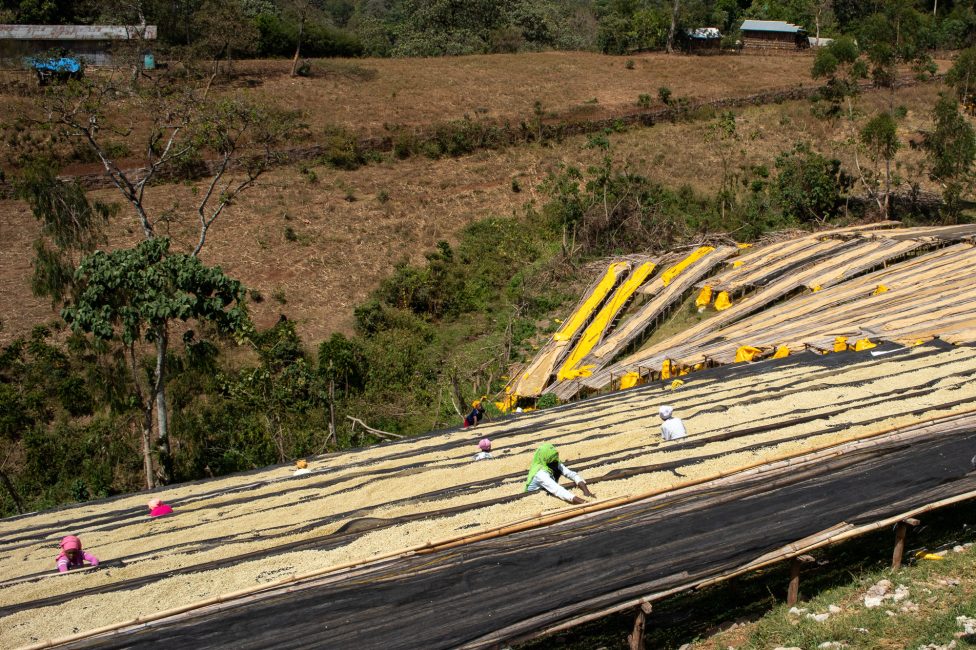Nicolas Colque (Organic)
Bright, elegant and clean with juicy nectarine acidity and notes of honey, peach, earl grey tea and mandarin.
This coffee comes from the ‘colony’ or settlement of Collasuyo, a remote community in Bolivia’s Caranavi Province, a lush, fertile area of steep valleys and mountains 150 kilometres north of La Paz city. This region is the epicentre for coffee production in Bolivia, with high altitudes, rich soil, and wide daily temperature ranges.
The coffee was produced by Nicolas Colque, who has been working in coffee for nearly two decades. He started modestly as a picker with a daily salary of just $1.20USD. After a lot of saving and an incredible amount of hard work, Nicolas, with his wife, Maruja Mamani, and purchased a ten-hectare plot of land that he called La Florida. Nicolas and Maruja live on their farm with their two children, 10-year-old Lionel and 8-year-old Denya.
La Florida is 10 hectares in size, and of this, six hectares are dedicated to coffee which is planted at an altitude of 1,650–1,850m above sea level. The farm is planted with heirloom Caturra, Catuaí, and Typica varieties, and harvest runs from May to September, peaking in June and July. The farm’s high altitude helps to ensure a slow maturation of the coffee cherry, with stable night-time temperature and mild day temperatures. This slow maturation allows concentrated sugars to develop and gives the cup more structure and complex flavours.
All of the coffee on La Florida is picked by hand, when perfectly ripe. Colque and Mamani farm using fully organic methods, without the use of any chemicals or pesticides. The coffee trees grow in a rich clay soil under the protective shade of native forest trees, whose heavy leaf fall creates a natural mulch fertiliser, and whose canopy provides an important habitat for the many bird and insect species in the area.
Nicolas Colque and Maruja Mamani are members of Agricafe’s Sol de Manaña or ‘Morning Sun’ program, which focuses on providing technical assistance and education to help producers improve both quality and yield.
Whilst he was initially sceptical of the program, Colque joined at his wife’s behest, and is now is a huge advocate of the program. ‘My eyes have been opened’, he explained when we visited. Mamani told us that already their plantation is much healthier and is producing more coffee. Together they have planted an impeccable nursery stocked full of happy and very healthy seedlings. In the last 12 months since our last visit, they have already planted an additional hectare of coffee, and begun to process their own coffee onsite, thanks to a new pulper and washing station that has been set up on their farm. In the coming years they plan to expand their production and their farm by a further four hectares.
This particular lot was carefully processed in late July. It was picked from a new part of the farm that Colque has called ‘El Mirador’. On the same day of picking, the coffee cherry was pulped using pulped on Nicholas Colque’s farm, and then fermented for 12–16 hours. After fermentation it was dried on raised African beds. While drying, the coffee was turned regularly to ensure it dried evenly, and carefully inspected for any defects (often more visible in wet parchment). Once the coffee reached 11–12% humidity, it was transported to La Paz where it was rested, and then milled at the brand new Agricafe dry mill. At the mill the coffee was carefully screened again by machines and also by hand.
